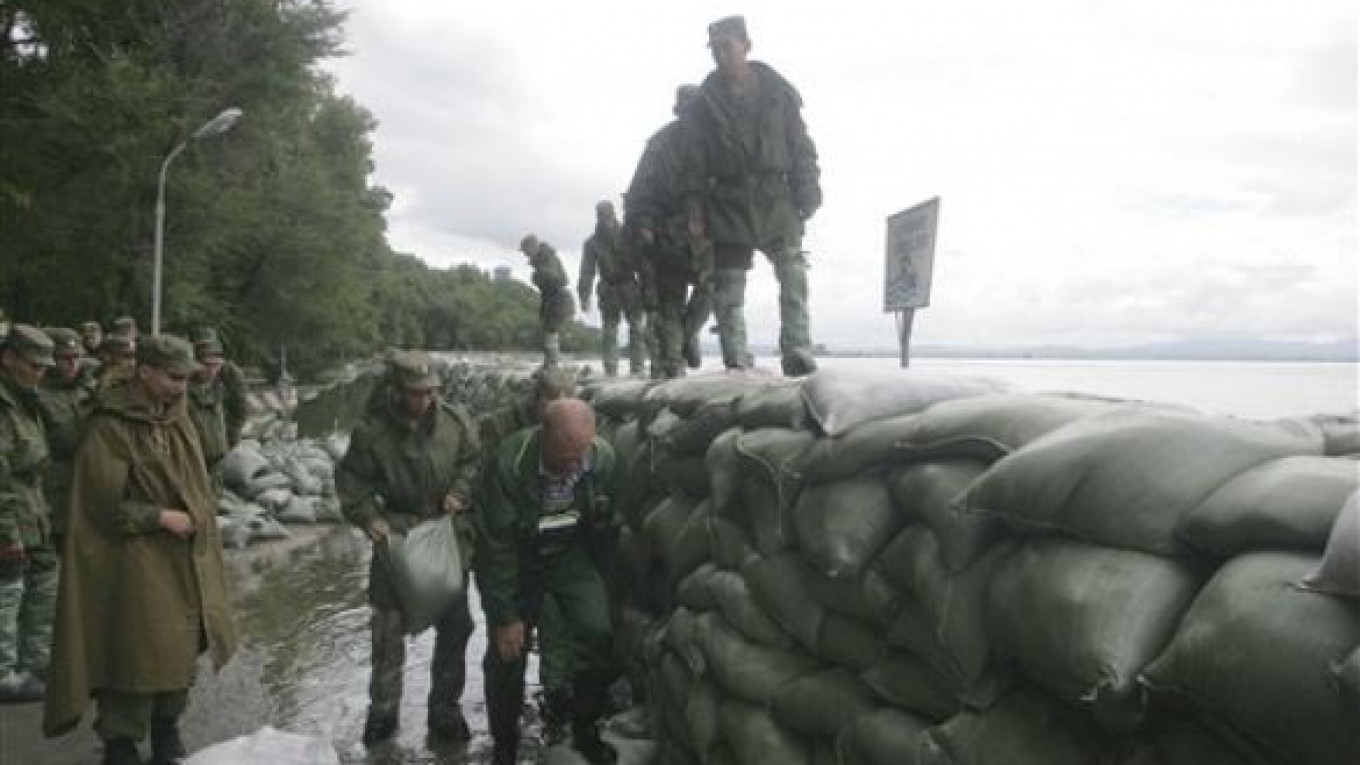A further 36,000 people will need to be evacuated from the Far East as floodwaters in the area continue to rise, Deputy Prime Minister Yuri Trutnev said Tuesday.
Almost 16,000 people have already been evacuated and 98,800 people have been affected by the ongoing flooding on the Amur River, Trutnev told Prime Minister Dmitry Medvedev Tuesday during a meeting.
“Flooding in Khabarovsk is expected to peak between September 6 and September 9 and in Komsomolsk-on-the-Amur between September 11 and September 15. It’s an absolute historical record,” Trutnev said, according to a transcript published on the government’s website.
Trutnev was appointed as a deputy prime minister and presidential envoy to the Far East by President Vladimir Putin on Saturday, the same day that Viktor Ishayev was dismissed from his position as Far East Development Minister, in a move that Putin described as "planned" and "not connected" to the floods.
The Khabarovsk Region, Amur Region and the Jewish Autonomous Republic have been hit hardest in the floods. The floodwaters are not expected to abate significantly before the end of September or early October.
About 45,000 people are taking part in rescue work, including 11,000 people from the Emergencies Ministry, Trutnev said.
The far eastern city of Komsomolsk-on-the-Amur, where water levels have already risen by 820 centimeters, is in particular danger, according to Trutnev. The city is home to about 300,000 people and is an important manufacturing center for Russia’s aviation industry.
The current spike in water levels near the city of Khabarovsk may partly be the result of dams on tributaries of the Amur in Chinese territory releasing water in late August, the Federal Meteorological Service said Tuesday. Northern China, which borders Russia's Far East along the Amur River, has also experienced severe flooding in recent weeks with reports of up to 85 deaths.
The World Wildlife Fund said Monday that the long term causes of flooding in the Far East were the chronic mismanagement of forest ecosystems and water basins, as well as climate change.
A Message from The Moscow Times:
Dear readers,
We are facing unprecedented challenges. Russia's Prosecutor General's Office has designated The Moscow Times as an "undesirable" organization, criminalizing our work and putting our staff at risk of prosecution. This follows our earlier unjust labeling as a "foreign agent."
These actions are direct attempts to silence independent journalism in Russia. The authorities claim our work "discredits the decisions of the Russian leadership." We see things differently: we strive to provide accurate, unbiased reporting on Russia.
We, the journalists of The Moscow Times, refuse to be silenced. But to continue our work, we need your help.
Your support, no matter how small, makes a world of difference. If you can, please support us monthly starting from just $2. It's quick to set up, and every contribution makes a significant impact.
By supporting The Moscow Times, you're defending open, independent journalism in the face of repression. Thank you for standing with us.
Remind me later.






